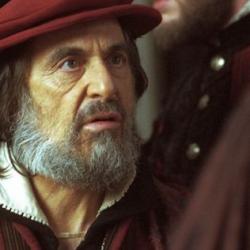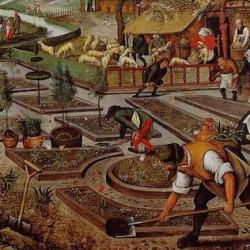Tracing the separation of “economics” from the rest of life, Dumont notes that one key moment was the blurring of traditional distinctions between fixed property in land and movables. This was based on the priority of the I-Thou over the I-It relation (not his terminology): in “traditional societies,” “relations between men are more important, more highly valued, than the relations between men and things.” Given this view, for traditional societies, “immovable wealth remained, as associated with power over men, the only recognized form of wealth.” Again, “rights in land are enmeshed in the social organization in such a manner that superior rights accompany power over men. Such rights or ‘wealth,’ appearing essentially as a matter of relations between men, are intrinsically superior to movable wealth, which is disparaged.”
In modernity, the human-thing relation takes on primacy, and in conjunction with this change movable wealth becomes more important than immovable. The “revolution” of modernity is that “the link between immovable wealth and power over men was broken, and movable wealth became more fully autonomous in itself, as the superior aspect of wealth in general.” With this, in turn, emerged “an autonomous and relatively unified category of wealth.” Wealth that carried social and political responsibility was no longer seen as different in kind from objects.
Milbank makes the same point in his essay in The Crisis of Global Capitalism :
“the disappearance of the English peasantry at the end of the Middle Ages and the later dissolution of the monasteries . . . . vastly increased the amount of land held by the gentry in purely absolute, economic terms, with no social or political duties attached.” He adds a dig at Calvinism: “The gravitation of a segment of the English gentry towards Calvinism, which sharply separated human contract from the divine gift of grace, is in this respect unsurprising.”
Both writers mark a profound change. Land owners today might work their land for profit, but the others who work their land are wage laborers for whom the land owner has no further responsibility than a paycheck. Land owners of the middle ages had responsibility for housing, health care, and even judicial oversight of the serfs or peasants who lived on their land. In practice, of course, many land owners today take a “medieval” interest in their workers. And I am not nostalgically yearning for a restoration of peasantry. The point has more to do with conceptions of property: Our “purely economic” conception of property is historically contingent, and (as Milbank points out) is applicable only to modern societies. What is lost in our strict detachment of concepts of property from communal responsibility, responsibility for other human beings and for the common good?










